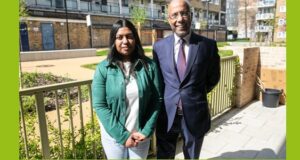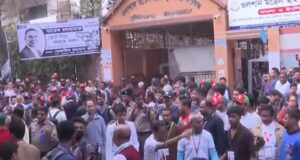The NEC issued a report saying the allegations against Lutfur Rahman’s abuse of Labour Party membership list were unfounded. Rahman who was the member’s choice for Labour Party Mayoral candidate was subsequently removed after a dossier was submitted citing possible fraudulent votes. However, the investigation produced no evidence of any wrong-doing by him and made clear that, if there were any irregularities, it wouldn’t have made any difference to the outcome.
The report reveals that, of the 1,217 members to be eligible to take part in the selection process, 149 had been found not to live at the address on the membership list. This finding was presented by complainants against Mr Rahman, allegedly on the basis of a canvass of less than half of the membership. However London borough migration figures reveal that, in Tower Hamlets, 9.5% of the population move out of the borough each year and a further 5.3% move within the borough. We should therefore expect 180 out of 1217 members who had paid their relevant subs on average a year previously to no longer live at the same address.
No doubt this warranted further investigation, but it does not necessarily imply anything significantly wrong. Out of those 149 members no longer living at the address on the membership list, the report claims there is “no evidence that 75 of them were ever registered as an elector at the address where they claimed their Labour Party membership at the time of the selection.” According to the Electoral Commission, about 18% of those eligible to vote in inner London are not registered, often because they have relatively recently moved in or live with their parents. Tenants of private landlords are less likely to be registered, students may be registered elsewhere, and some members may not be eligible to vote. Labour Party members may be expected to be more likely to register than those uninterested in politics, but people who are more transitory (as these members appear to be) are less likely than others.
However, that whole matter is of little relevance since only 12 of these people actually voted in the selection which Lutfur Rahman won the selection by 25 votes over both other candidates in the final round, 182 over his nearest rival. It was acknowledged at the national executive that, even if there were irregularities, they could have made no difference to the outcome, a view that had also ben shared by the NEC disputes panel. The report, which was poorly written and failed to adequately explain what had happened, nevertheless sought, without any supporting evidence, to conclude: “It is membership abuse to claim to be a member at any address where you do not live. The number of cases strongly suggest that this would not have come about through accident or through individuals acting alone to abuse the system.
The evidence outlined above is sufficient to suggest a concentred effort to add people to the membership list in Tower Hamlets was being undertaken by one or more individuals.” This conclusion was not agreed by the executive which called for a further more comprehensive report, and for an investigation into other aspects of the complaints made against Lutfur Rahman, as had been promised previously. Whilst the report fails to provide any firm evidence of widespread membership abuse, some irregularities cannot be ruled out. However, no evidence of any conspiracy by any candidate for the mayoral selection has been found. It is clearly a “membership abuse” to misrepresent one’s address in order to be a member where one doesn’t live. It is surely not necessarily wrong for people to delay transferring their membership for a little
while after moving.
 East London News A Force for the community…
East London News A Force for the community…



